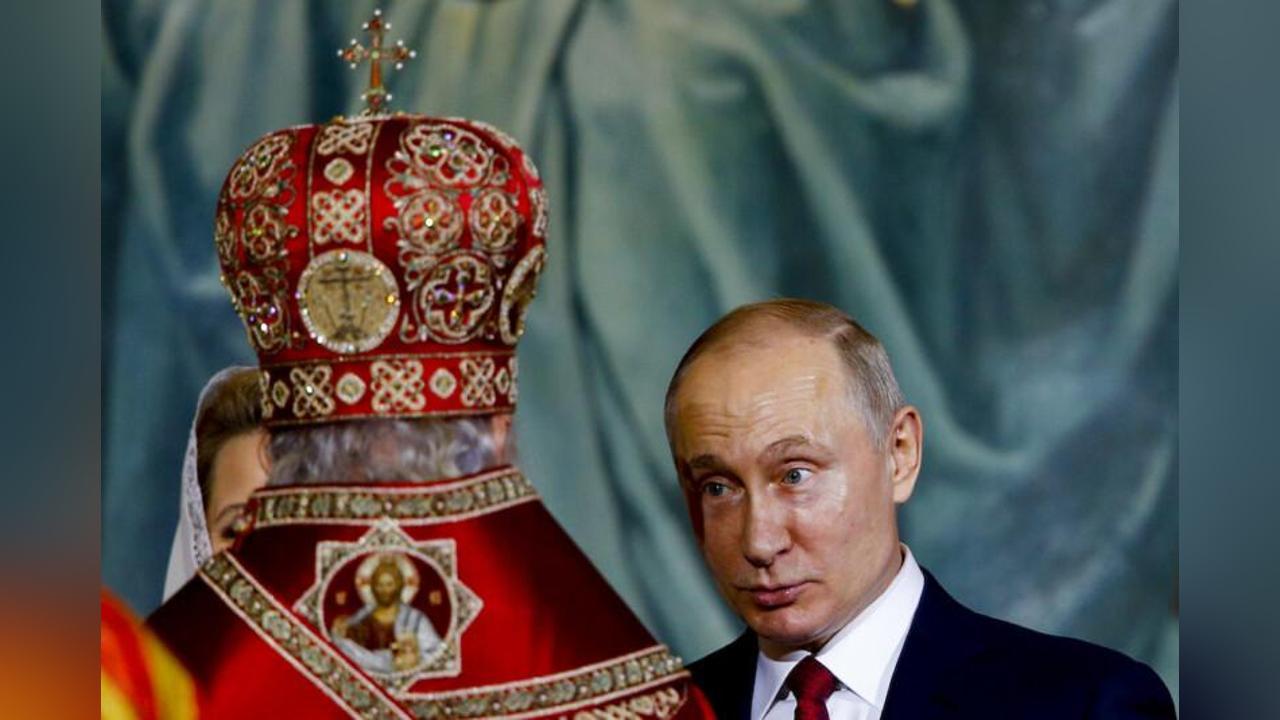Africa-Press – Cape verde. On July 28, 2023, during a meeting with African leaders in St. Petersburg in Russia, a peculiar authority gave a speech: Russian Patriarch Kirill voiced his desire to expand Russian Orthodox churches in Africa.
Political expansion of the Russian Orthodox Church in Africa Over the past two years, the Russian Orthodox Church has been expanding in Africa. It has opened more than 200 parishes in 25 African countries even though traditional Orthodox jurisdiction of Africa belongs to the Patriarchy of Alexandria, Egypt.
Patriarch Kirill claims that the Russian Orthodox Church is obliged to open new churches for the faithful in Africa as he asserts that the Patriarchate of Alexandria has lost its legitimacy through political maneuvers.
Kirill’s assertion is driven by Alexandria’s decision to recognize the independence of the Ukrainian Orthodox Church. Patriarch Theodore II of Alexandria has also issued a statement against Patriarch Kirill.
He pointed out that Kirill was dividing believers through harsh political statements and that he has no right to “mislead Christ’s flock over political issues.
” Spiritual guidance amongst political divisions The clash between Kirill and Theodore II is deeply rooted in the events of the recent past.
The Kyiv Patriarchate separated from Moscow in 2019 due to political reasons—a move that was received with anger in Moscow. The Russian Church excommunicated the Ukrainian clergymen as schismatics.
In the same year, Patriarch Theodore II recognized the Kyiv Patriarchate and was a leading actor in the support of Ukraine’s spiritual independence. Thus, he drew the attention of Patriarch Kirill.
The scope of Theodore II’s authority is of particular importance to Kirill as the former holds the title of the “Pope and Patriarch of the Great City of Alexandria, Libya, Pentapolis, Ethiopia, All Egypt and All Africa.
” With more than one million Eastern Orthodox believers in the African continent, Theodore’s spiritual authority stretches from Niger to South Africa, while his jurisdiction attracts conflict and is vulnerable to political manipulations.
Meanwhile, Patriarch Kirill believes that increasing his influence is only possible through intervening in Theodore II’s jurisdiction. He publicly denounces the Patriarchate of Alexandria as corrupt and degenerated, and claims that the Patriarchate of Alexandria deprives Africans of spiritual guidance.
In so doing, he legitimizes the Russian Orthodox Church providing them with spiritual guidance. Not confining this guidance under religious terms, Patriarch Kirill seeks to guide Russo-African relations through the Church as well.
Kirill’s approach to developing Russo-African relations varies. He tells African priests and believers to change their allegiances from Alexandria to Moscow and promises them welfare, infrastructure, schools, and hospitals.
This approach aims to play upon the needs and welfare of African people: the Russian Church promises to help under harsh political conditions, such as severing ties with Western countries and institutions.
Following Moscow’s spiritual lead also means accepting the Kremlin’s political agenda. Kirill claims that the Patriarchy of Alexandria will lead the body of believers into the Western sphere of influence.
Conversely, his own agenda reinforces Moscow’s ambitions in Africa and asserts that by seeking close ties with the Patriarchate of Moscow, African countries can protect themselves from external pressures.
Patriarch Theodore II also allocates funds from his Church for Africa, helping to establish schools and churches. Such actions serve to satisfy the spiritual needs of the African Orthodox community and are not connected to political rhetoric.
Theodore II shuns any efforts to politicize the Orthodox faith: in one of his latest statements, he warned the Orthodox world of the danger of Moscow’s political ambitions in Africa.
For More News And Analysis About Cape verde Follow Africa-Press






